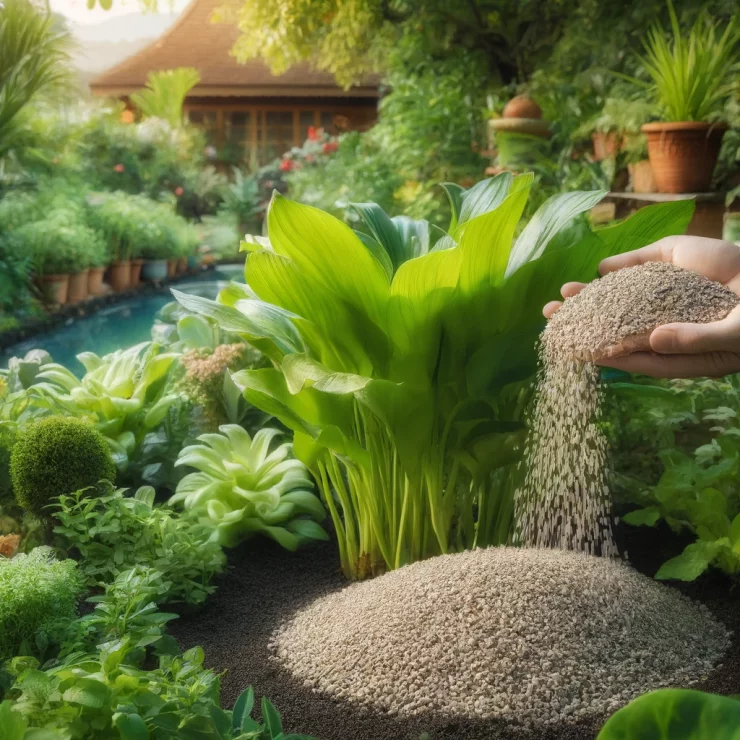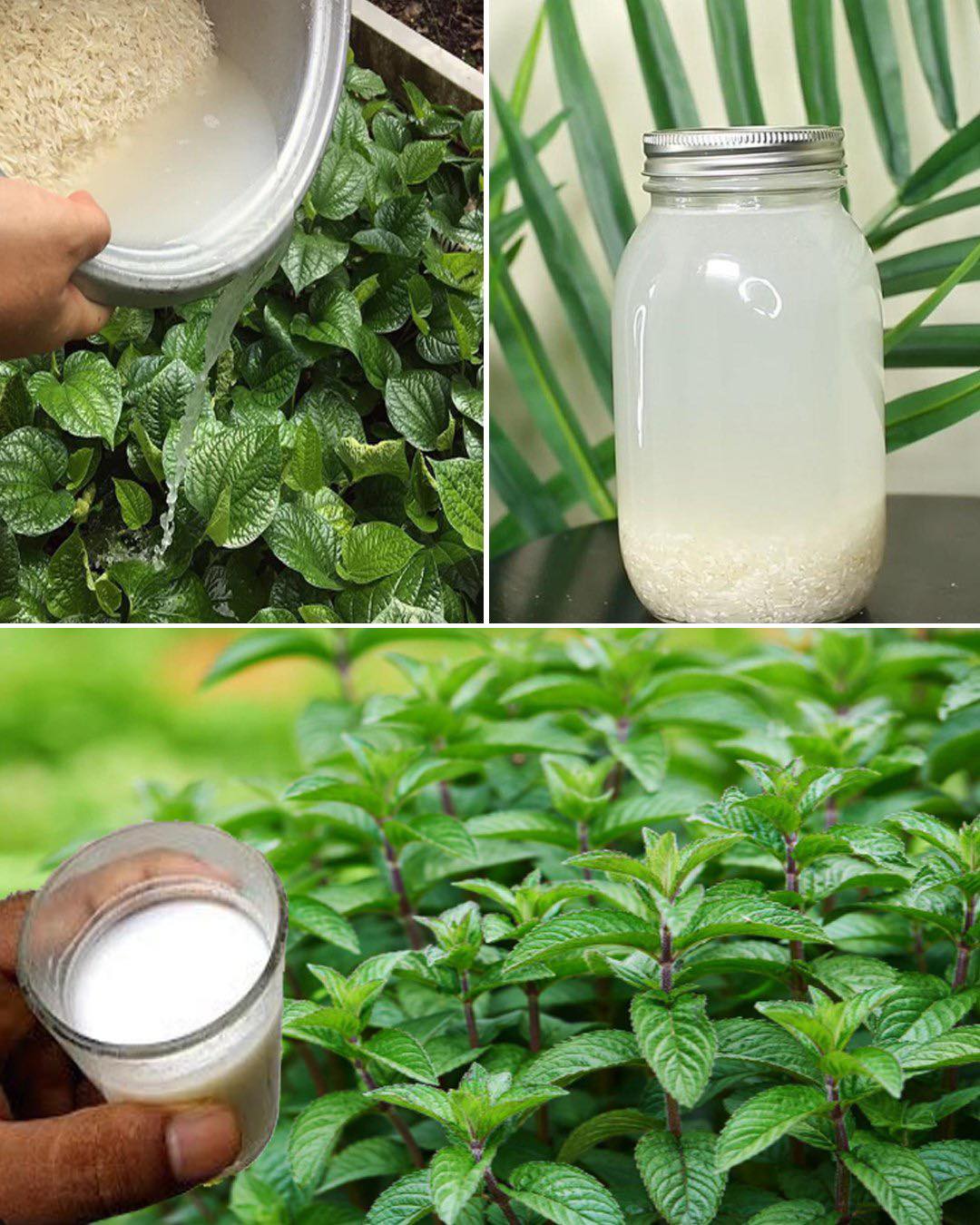When it comes to nurturing our plants and ensuring they reach their full potential, providing the right nutrients is key. Among the plethora of fertilizers available, one natural solution stands out: water rice fertilizer. This organic fertilizer, derived from rice water, has gained popularity for its effectiveness in promoting faster plant growth and enhancing overall plant health.

Why Choose Water Rice Fertilizer?
Rich Nutrient Content: Rice water is packed with essential nutrients that plants crave. It contains nitrogen, potassium, phosphorus, and other micronutrients vital for healthy plant development. These nutrients are readily absorbed by plant roots, ensuring quick uptake and utilization.
Promotes Soil Health: Water rice fertilizer not only benefits plants but also improves soil structure and fertility. When applied to the soil, it enhances microbial activity, promotes nutrient cycling, and helps maintain soil moisture levels. This leads to a healthier, more productive growing environment for plants.
Cost-Effective and Sustainable: One of the greatest advantages of water rice fertilizer is its cost-effectiveness and sustainability. It utilizes a natural byproduct—rice water—that would otherwise be discarded, making it an eco-friendly and economical choice for both home gardeners and commercial growers.
How to Make Water Rice Fertilizer:
Making water rice fertilizer is simple and requires minimal ingredients. Here’s a basic recipe to get you started:
Collect Rice Water: After rinsing or cooking rice, save the water used to rinse or boil the rice. This starchy water contains valuable nutrients that can benefit your plants.
Dilute the Rice Water: Depending on the concentration of the rice water and the plants you’re fertilizing, dilute it with clean water. A typical ratio is one part rice water to two or three parts water.
Apply to Plants: Use the diluted rice water to water your plants as you would with regular irrigation. Apply it to the soil around the base of the plants, ensuring thorough coverage.
Repeat Regularly: For best results, apply water rice fertilizer to your plants regularly, ideally once every one to two weeks during the growing season.

Tips for Using Water Rice Fertilizer:
Avoid Overapplication: While water rice fertilizer is beneficial, avoid overusing it, as excessive nutrients can lead to nutrient imbalances or salt buildup in the soil.
Monitor Plant Response: Pay attention to how your plants respond to the fertilizer. If you notice any signs of nutrient deficiency or excess, adjust your application accordingly.
Combine with Composting: For an extra boost of nutrients, consider incorporating water rice fertilizer into your compost pile. This will enrich the compost with valuable nutrients, further enhancing its benefits for your plants.
Water rice fertilizer offers a natural, sustainable, and cost-effective solution for promoting faster plant growth and improving overall plant health. By harnessing the power of rice water, gardeners can nourish their plants with essential nutrients while minimizing waste and environmental impact. Incorporate water rice fertilizer into your gardening routine and watch your plants thrive like never before.
News
JJ Redick reacts to Luka Doncic trade for Anthony Davis
In one of the most jaw-dropping moves of the season, the NBA landscape was rocked by the blockbuster trade involving Luka Dončić and Anthony Davis—a swap that has sent ripples of excitement, disbelief, and heated discussion through the league. Among…
Anthony Davis FULL reaction to trade to Mavericks for Luka Doncic
In a blockbuster move that sent shockwaves through the NBA and left fans reeling, Anthony Davis has been traded to the Dallas Mavericks in exchange for Luka Dončić. In the immediate aftermath of the news, Davis took to the media…
Shaq reacts to Dallas Mavericks wanting Kevin Durant after Luka-AD trade 👀
In the constantly shifting world of the NBA, trade rumors and blockbuster moves are a regular part of the season’s drama. The latest twist has fans buzzing: the Dallas Mavericks have reportedly set their sights on acquiring Kevin Durant in…
Donovan Mitchell FILTHY poster dunk on Kristaps Porzingis 😳
In a game filled with high-intensity moments and jaw-dropping highlights, one play in particular has left fans and analysts buzzing about Donovan Mitchell’s latest display of athleticism. Early in the contest, with the atmosphere already charged by an evenly matched…
Joel Embiid hits go-ahead bucket vs Mavs then chats with Anthony Davis after game
In one of the most thrilling contests of the season, Joel Embiid delivered a clutch performance against the Dallas Mavericks, punctuating the game with a go-ahead bucket that sent the home crowd into a frenzy. The atmosphere in the arena…
D’Angelo Russell game winner as Nets hit two 3’s in 3 seconds to win vs Rockets 😱
In one of the most electrifying moments in recent NBA history, D’Angelo Russell delivered an unforgettable game-winner that left fans and commentators in complete awe. With the Brooklyn Nets locked in a tense battle against the Houston Rockets, the outcome…
End of content
No more pages to load











